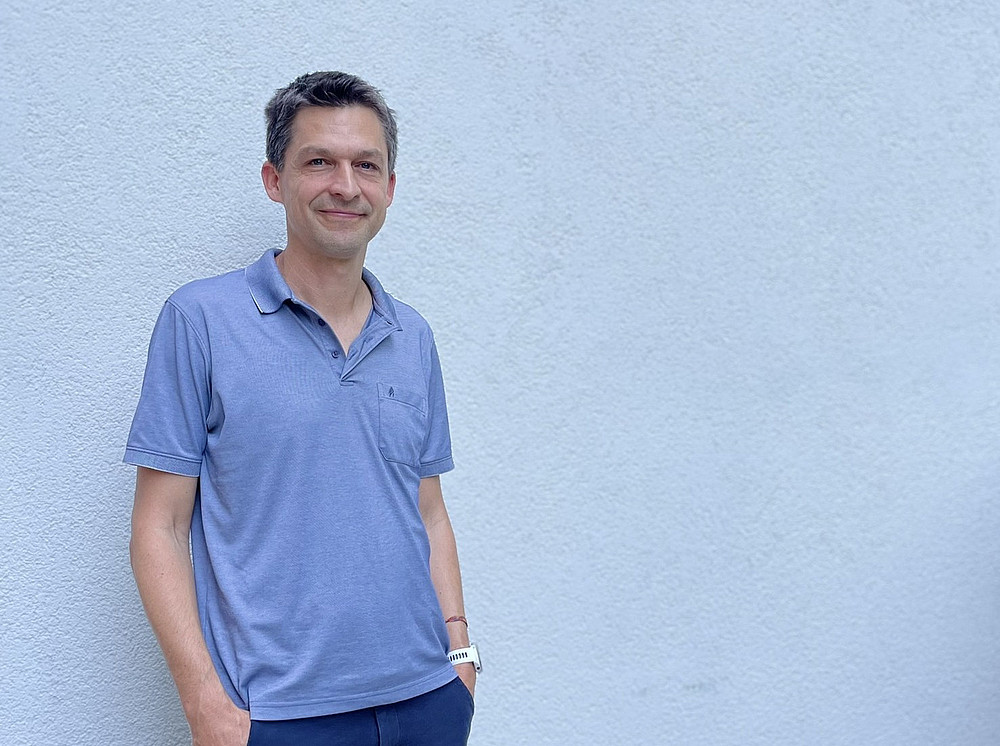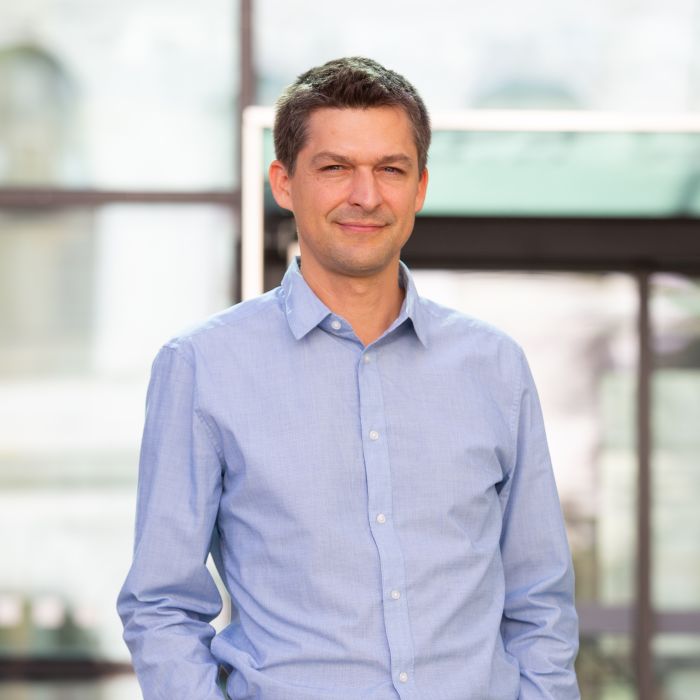"I want to demystify creativity"

How can creativity be measured? Is artificial intelligence creative? Are creative people more intelligent than non-creative people? Mathias Benedek, member of the "Plurality and Diversity" cluster and keynote speaker at EARLI 2025, gets to the bottom of these and other questions in his research work.
Mathias Benedek had already caught fire for the topic of creativity in his Master's thesis. At the time, he was working on the task of developing a creativity training programme. In doing so, he recognised the great conceptual difficulties in defining and measuring creativity - topics that stayed with him. He continued his doctoral work in Kiel, where he focussed on associative processes and memory recall in creative thinking. He returned to Graz as a postdoc and has headed the Creativity and Innovation research group at the Institute of Psychology at the University of Graz as an Associate Professor since 2023. This group deals with the neurocognitive foundations of creativity, i.e. the question of which processes are involved in creative thinking, but also with individual differences, i.e. the question of which characteristics and dispositions support creative behaviour. Other key areas of research include the measurement of creativity and the influence of digital technologies such as artificial intelligence on people's creative behaviour.
But what exactly is creativity? "Put simply, creativity happens when people bring something new and meaningful into the world that has value for someone. A creative person is therefore someone who spends a lot of time on creative activities or someone who has a lot of creative ideas." The spectrum ranges from everyday creativity to creative professionals and creative geniuses. In recent years, the focus of research has shifted strongly towards the everyday population in order to understand how creative ideas arise and how they solve problems.
But creativity is nothing mystical, emphasises Mathias Benedek. Research shows that it can be narrowed down to fairly elementary cognitive and neurocognitive processes such as memory, attention and control. That is why he is keen to demystify creativity. "Creativity is a basic skill that everyone is more or less well equipped with. The processes behind it are actually quite ordinary, even if the results often seem extraordinary."
And how can creativity be measured? Creativity tests differ from intelligence tests, says Mathias Benedek, as there are no right or wrong solutions, but original answers have to be assessed. A classic task, for example, is the "alternative uses task", in which test subjects are asked to find unusual uses for everyday objects - such as a brick or a car tyre.
The biggest challenge here is assessing the quality of an idea." While human assessors are traditionally used for this task, digital technologies such as artificial intelligence open up new ways of making judgements.
However, aspects such as the enjoyment of the creative approach are also important when assessing creativity. "Even if I have high creative potential: If I'm not interested in creative work, then of course I won't utilise this potential." The expectation of self-efficacy also plays a role, i.e. the belief in one's own ability to be creative. "People who consider themselves uncreative are also unlikely to develop their creative potential," says Mathias Benedek.
Incidentally, there is a substantial connection between creativity and intelligence. "Intelligence researchers like to say that creativity is a part of intelligence, while creativity researchers like to say that intelligence is a part of creativity," says Mathias Benedek with a wink. "Elementary intelligence performance at least correlates positively with creative thinking performance - incidentally also in relation to creative life performance. Intelligence is helpful, but high intelligence alone does not predict high creativity."
He finds it particularly interesting that even simple intelligence skills, such as the effectiveness of memory recall, can predict creative thinking well. "Although memory recall seems uncreative, it is crucial for the effective synthesis of existing knowledge elements. Creative thinking requires a great deal of knowledge, the ability to recall effectively and the ability to suppress dominant, known solutions."Various facets of intelligence are therefore important sub-components of creativity.
What would he wish for? That creativity gains an even greater presence in psychological research and in education systems. "Creativity is often relegated to the arts subjects, although it is a problem-solving skill that can play a role in all subjects, from maths and science to languages. But creativity is not anchored there." Of course, he admits, it is more challenging for teachers to justify a creative solution over a 'correct' solution, as it is easier to evaluate a right or wrong answer. Studies also show that although teachers want creative students, they are less enthusiastic about characteristics typical of creativity, such as non-conformity or questioning. "That's why I see it as my task to integrate creativity more strongly into the education sector and also into research. Perhaps my keynote speech at EARLI 2025 will contribute to this," says Mathias Benedek.
Has he ever considered career paths other than research? "I always put all my eggs in one basket and I'm very happy that it worked out. Now I see my role as supporting young colleagues. There are many great young people in the field who deserve it just as much and Graz is a good place for that!"
